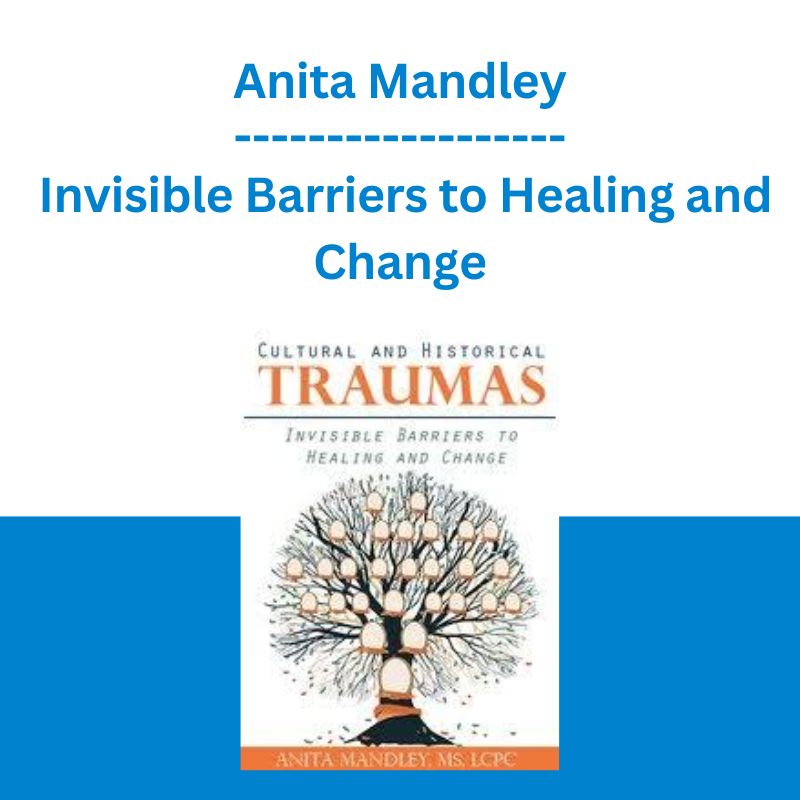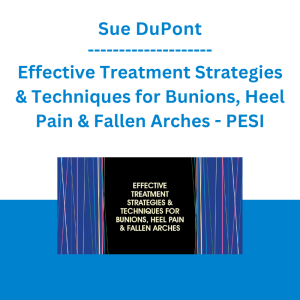*** Proof of Product ***

Exploring the Essential Features of “Anita Mandley – Cultural and Historical Traumas: Invisible Barriers to Healing and Change”
Cultural and historical trauma appears and is influenced in your work more than you think, especially if you work with people of color, war survivors, refugees and their descendants. Additionally, if your clients differ from you in the areas of race, culture, religion, sexuality, class or gender, your own biases are likely to come out in session.
Watch Anita Mandley as she brings these issues out of the shadows and into consciousness, and opens a new path toward addressing the hidden grief of cultural and historical wounds. Not only will she show you how to help your client’s historical trauma, but she will help you become a culturally more mindful and competent therapist to effectively help your clients heal their trauma.
Speaker
Anita Mandley, MS, LCPC
Anita Mandley, MS, LCPC, is an integrative psychotherapist practicing at The Center for Contextual Change. She’s the creator of the Integrative Trauma Recovery Group (ITR), a group therapy process designed specifically for adults with developmental and complex PTSD.
Speaker Disclosures:
Financial: Anita Mandley, MS, LCPC, is a psychotherapist, supervisor, consultant and trainer with The Center for Contextual Change. She is an adjunct professor at National Louis University and receives a speaking honorarium from PESI, Inc. Anita has no relevant financial relationships with ineligible organizations.
Non-financial: Anita Mandley, MS, LCPC, has no relevant non-financial relationships.
Objectives
- Evaluate the clinical implications of clients with historical trauma to inform the clinician’s choice of treatment interventions.
- Articulate clinical interventions that acknowledge and process grief and loss connected to the client’s historical trauma.
Outline
Awareness, Acknowledgement and Assessment
- Acknowledgement and Awareness of The Intergenerational Impact and Memory Traces of Cultural and
- Historical Traumas on Clients and The Therapist’s Own Self
- Relevant Areas for Assessment
- Structured Model of Assessment
- Case Examples of The Clinical Implications of Traumatic Experiences in The Present
Moving from Reflexive Reactivity to Connection, Fluidity and Coherence in The Here and Now
- Difference Between Bias, Prejudice and the “Isms”
- The Process to Regulate the Neurobiology of Bias
- The Benefit and Power of Providing the Resources of Witness, Protector and Comforter to Heal Intergenerational Wounds
How to Uncover the Survival Narrative, Validate the Trauma, And Move to A Strengths-Based Process of Empowerment and Healing
- Studying, Listening to And Validating the Client’s Traumatic Cultural Narrative, While Listening for
- The Resources That Helped Them Survive
Using the Client’s Own Survival Resources, As Well As Cultural-Specific Rituals and/or Creating - New Rituals for Acknowledging and Processing the Loss and Grief Connected to Historical Traumas
- New Ways to Establish Boundaries and Self-Defense and Self-Protection
Target Audience
Psychologists, Addiction Counselors, Counselors, Social Workers, Marriage & Family Therapists, Nurses, and other Behavioral Health Professionals
Reviews
Diana R
“Excellent presentation, very moving, I was at times close to crying. At the same time intellectually stimulating and enriching. Anita is an excellent speaker in many ways, intelligent, convincing and full of honest energy. “
Jeff G
“The presentation did a wonderful job in telling stories. Our presenter illustrated their points while also respecting audience members who at times came across as confronting the presenter. Despite this, the presenter remained calm and confident. Well done!”
Please see the full list of alternative group-buy courses available here: https://lunacourse.com/shop/










 Atlas API Training - API 570 Exam Prep Training Course
Atlas API Training - API 570 Exam Prep Training Course  Sue DuPont - Effective Treatment Strategies & Techniques for Bunions, Heel Pain & Fallen Arches - PESI
Sue DuPont - Effective Treatment Strategies & Techniques for Bunions, Heel Pain & Fallen Arches - PESI  Dave Landry - Stock Selection Course
Dave Landry - Stock Selection Course  GymABstics - Thorton
GymABstics - Thorton